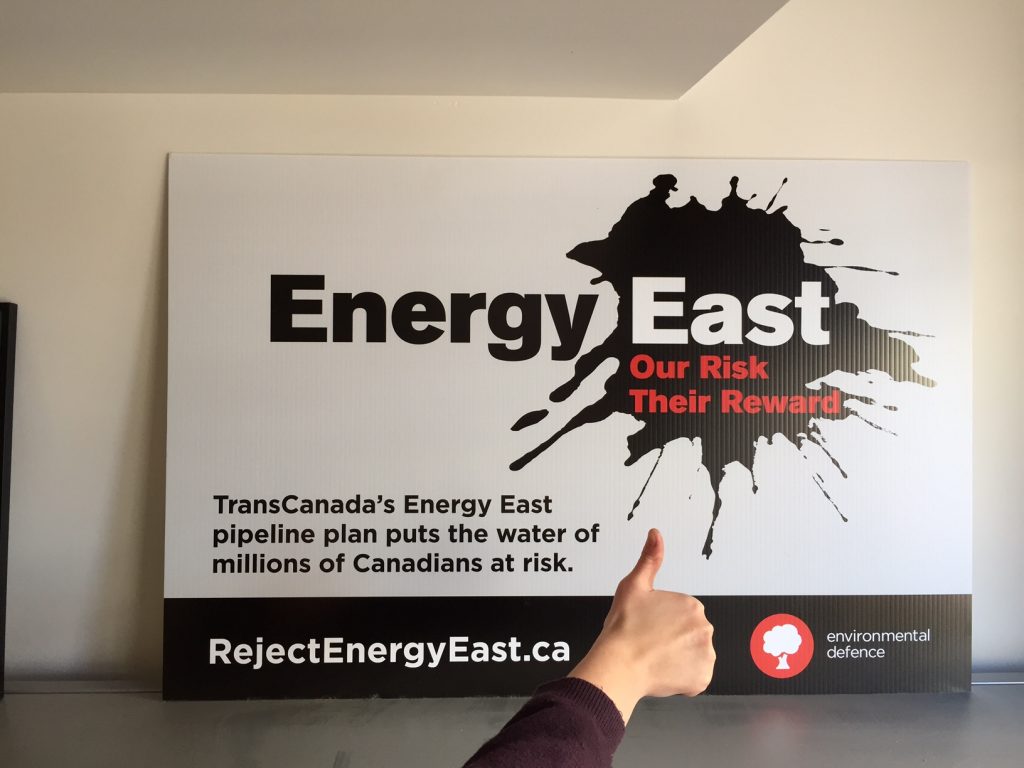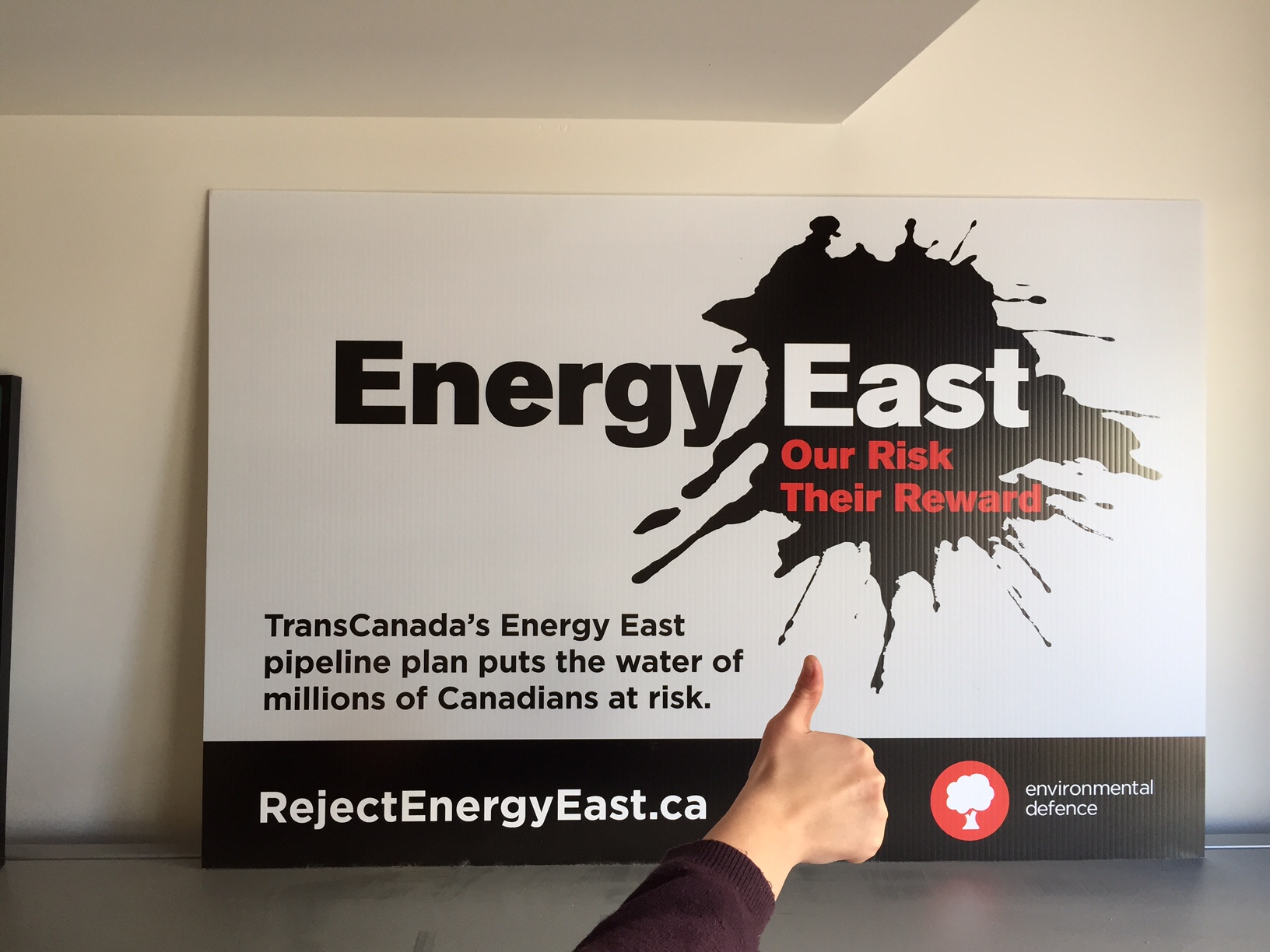Big news! Yesterday, TransCanada asked the National Energy Board (NEB) to suspend its review of Energy East.
TransCanada, the company behind the Energy East, says it wants an extra 30 days to study the NEB’s new requirements for its review of the project and the implications of these requirements for the cost, timeline, and viability of the massive tar sands pipeline. TransCanada also suggested to its shareholders in a press release that the company is considering pulling the plug on Energy East.

The prospects for Energy East just keep getting dimmer. Even TransCanada seems to finally be seeing the light and realizing its proposed pipeline is nothing more than a pipe dream.
The reality is that the tar sands won’t grow enough to fill Energy East. Investment in the tar sands is drying up. The big multinational oil companies have fled the tar sands. The remaining players have no plans for new projects as oil prices remain low. As the world moves to tackle climate change, the dirtiest, most expensive, most difficult oils to extract and transport — like the tar sands — can no longer compete. Even pro-industry analysts acknowledge Energy East is too risky because there won’t be enough oil production to fill the pipeline.
TransCanada’s request to suspend the review also comes just three weeks after the NEB ruled that the scope of its review will be expanded to include Energy East’s upstream and downstream greenhouse gas pollution, the pipeline’s alignment with climate laws and policies, and the need for the project in a carbon-constrained future.
TransCanada may be blaming the need to assess carbon pollution in the NEB review, but it’s the fundamental economics of supply and demand that have laid bare the weakness of this deeply flawed project. Energy East cannot be justified in a world of low oil prices, an inevitable transition away from fossil fuels, and declining investment in the tar sands.
It’s not clear what the next move is for TransCanada or the NEB. It’s possible that TransCanada is preparing to launch a legal challenge of the NEB’s decision to include climate impacts within the scope of the pipeline review, in an attempt to salvage the dead-end project. Alternatively, it’s possible that TransCanada is signalling to its shareholders that the company is preparing to withdraw its Energy East application altogether.
Regardless, this is the latest example of what happens when Canadians work together and point out the risks of tar sands pipelines. First, TransCanada had to cancel its Quebec tanker terminal because it put beluga whales at risk. Then a long delay in the pipeline review resulted from unethical behind-the-scenes lobbying by a TransCanada official (who was a former Premier). Then the NEB decided to take carbon pollution into account in its review of the pipeline. And now we’ve pushed Energy East to the brink.
This should be a wake-up call for the tar sands industry and Canada more broadly. As natural disasters ravage communities across North America, the era of fossil fuel expansion must come to an end. It’s time for a managed decline of the tar sands and a just transition to a clean economy.
TransCanada should do everyone a favour — including the company’s shareholders — and pull the plug on this ill-conceived project.








